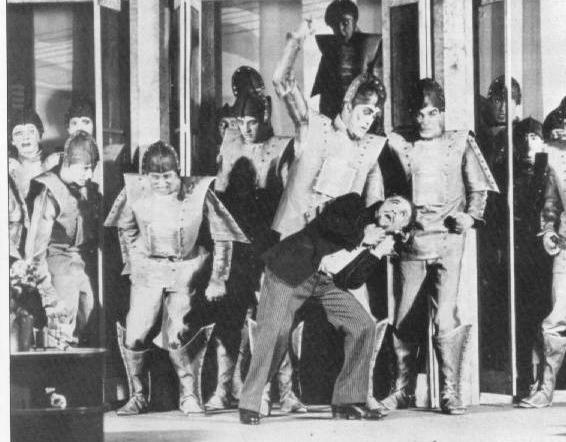The writer, as laborer, is now not only hidden behind the walls of a factory owned by his/her “author function,” than s/he is rendered uncannily invisible by the form, to be merely a ghost haunting the systems of distribution and consumption. Where is the writer’s work, if even the factory-house of the author-function is obscured by the publication medium? If we can barely discern the form of the text amid distributed palimpsests of aggregated ephemera, what chance do we have of understanding the writer’s actual production?
We are now ready to declare the death of the work. *books are symptomatic of this death: not of the author, but of the work—of the singular, whole, completed, standalone work. They are hybrid, unformed, inconclusive—inconclusive not in the sense of vague, but their conclusions are not located exclusively within the work, but are distributed across the network.
Books that do work. These are working books in the sense of working definitions: they are arguing towards something, although that something is inconclusive by the above definition. (“Working definition” is related to the “overlapping consensus”).
The book-container is not dead, any more than blogging is dead, but the work is. The fragmentary nature of media, the expansion of item into stream, signifies that the thing being constructed is higher up the chain. A single tweet or instagram photo is banal—a stream constitutes a far more interesting construction…
The work that is being done is more often than not completed by the work itself. Any post we make is not as responsible for its own success as the combined corporeality of all the posts together. We are the content, and it is the corpus of the platform that is the productive force. In the same way that the labors of the worker are concealed within the factory of Foxconn, that function is itself eclipsed by “designed by Apple in California.” Humans are returning to nature, but as resources. The writer becomes a mere natural resource, a font of creativity to be tapped and siphoned off. The mining platforms of the Kindle, the iPad, Facebook, and Twitter are where the value is extracted, fracking the writer to glean the last bits of molecular fuel from the husk of the writerly well.
Read More | "Ghosts, Robots, and Work" | Adam Rothstein | ?The State
